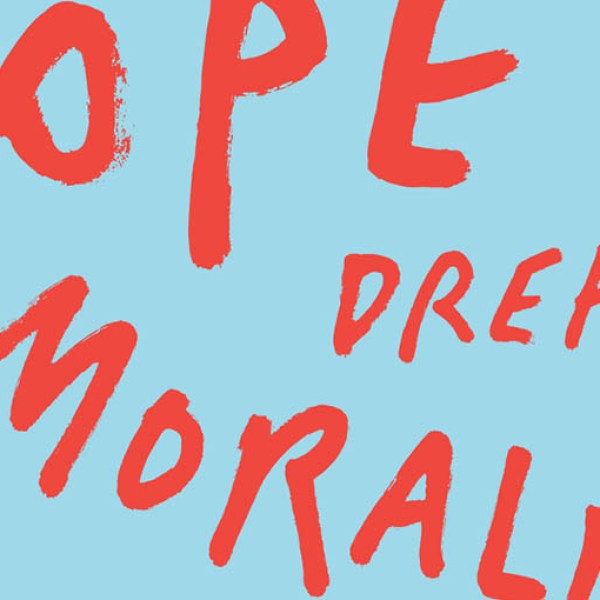CityMag spoke to three Adelaide Festival of Ideas thinkers on what Bitcoin can do for government, our disillusionment with democracy, and whether pets are people too.
Three ideas you should hear at the Adelaide Festival of Ideas
Kicking off on Thursday and running right through the weekend, the Adelaide Festival of Ideas is about to flood the city with thoughts and thinkers all looking to change your perspective on your life, city, state, country, world, and worldview.
There’s a lot to digest, and a stacked program (which you can pick through here), so we thought we’d introduce three ideas we’ve been scratching our chins over.
The blockchain is not just for Bitcoin

Katrina Donaghy
Nothing is as Millennial as Bitcoin. The digital cryptocurrency might as well have ridden into the zeitgeist on the back of a Charizard during a Pokémon Go hunt, further blurring the lines between what is real and what is cleverly arranged zeros and ones.
The phenomena has captured the attention of a subset of digital natives, who, rather than craning over phones watching for rare Japanese anime monsters, are instead trained to the ever changing peaks and troughs of the currency’s value.
But while Bitcoin is almost universally recognisable, the technological protocol that makes it possible – blockchain – has not enjoyed the same pop culture status.
To hear more on how blockchain might revolutionise your life, see Katrina Donaghy’s free event, Blockchain: Beyond the hype, at 11am this Friday, 13 July at the Adelaide Health and Medical Sciences building for the Adelaide festival of Ideas.
“There’s three elements to the blockchain technology: there’s cryptography, which has been around for some time; peer-to-peer protocols, which, again, have been around for some time; and the idea of data storage, which we’re all quite familiar with – the cloud,” Katrina Donaghy, the co-founder and co-chief executive officer of Civic Ledger, says.
These three elements allow a mutual ledger to exist between people, governments and organisations not owned by any of the parties involved, but instead existing in a peer-to-peer cloud-based network – known as a blockchain.
Because the ledger is decentralised, it is unable to be tampered with, and is therefore neutral and effectively incontestable.
For Bitcoin, this “solves the problem of the double spend of a digital asset,” Katrina explains, but the same technology could be used to make governments more efficient, further facilitate the Internet of Things, and allow people to take back ownership of the data they produce in their lives.
“Blockchain technology will be a different way of having a relationship with data where we will actually own our own data and choose to share our data through trusted mechanisms, keys and things like that,” she says.
“It’s going to require us to be responsible for the security of our information, which is going to be an interesting cultural shift, because we ‘re so used to having somebody else reset our passwords when we forget them. In the future, if you lose your keys, you’ve lost your assets, so there’ll be a lot of incentive for us to be far more careful.”
Disillusionment with democracy is nothing new

Professor Stuart macintyre
With every Trump-based news alert detailing the ways an individual in power can subvert the political system with little consequence, the world collectively hears another bell toll for the death of democracy as we know it.
If the original thought behind Christian bell towers striking cheerful hymns was to drive out demons, then this frenetic tolling must be the demons taking the long hanging rope and belting out a song for the apocalypse.
So yes, there is a feeling of disillusionment with democracy creeping into the public consciousness, but it’s important to remember that this is nothing new. In fact, it could be a driving factor in furthering democracy’s evolution.
To hear more on democracy from Professor Stuart Macintyre, see his free event The disillusionment with democracy this Saturday, 14 July at SAHMRI for the Adelaide Festival of Ideas.
“I think [the concerns are] founded,” says Professor Stuart Macintyre, Emeritus laureate professor and professorial fellow at the University of Melbourne.
“Donald Trump’s election is an example of someone from outside the party system more or less capturing Republican support… Perhaps the first of these phenomena were in Italy, in the 1990s, where Forza Italia – a political movement created by a businessman and media tycoon – simply displaced the existing parties.”
In the Australian context, outsiders have had much less success, with Pauline Hanson, Nick Xenophon, Jacqui Lambie, Clive Palmer, and even Sir Joh Bjelke-Peterson in the 1980s all not quite subverting the system – but in each case providing a voice for democratic dissent.
This history of questioning the system has led to refinement.
“It’s constantly evolving,” Stuart says.
“The history of democracy in Australia shows the series of changes. We get responsible government and elect it, but then we enlarge the franchise, then we feel it necessary to extend the franchise to women, we change our electoral system, we make voting compulsory, we introduce public funding for parliamentary candidates.
“There are a series of expedients from different motives, but many of them are meant to revive and respond to lack of satisfaction with the way it’s operating.”
To be disillusioned is one thing, but the greater threat is to not participate at all.
“Democracy is stable so long as there’s an active democratic life. If you neglect it, if you don’t bother about it, if you withdraw from it, then I think it’s in trouble,” Stuart says.
“The period since the 1980s has seen both an extension of democracy, with the downfall of communism, but also a fragility of democracy, which, in a number of countries’ democratic systems, have been subverted or turned into presidential ones with almost unlimited powers. Multiparty democracy gives way to single party democracy.”
Animals are people too

Dr Amy Milka
Now more than ever before the animals in our lives are people.
A relationship that was once master and subordinate, possessor and possession, has morphed into a mix of ownership and familial responsibility – pet parenthood.
While the phenomenon might seem modern – a large corner of Instagram is carved out purely for costumed dogs, after all – but this is a movement that reverberates back into 18th century England.
At this time, people are “starting to realise that animals aren’t just machines,” explains Dr Amy Milka, a researcher of 18th century history, literature and culture at the University of Adelaide.
To hear Dr Amy Milka speak on a panel discussing animal personhood, along with Professor Pierre Serna, Dr peter Burdon, and senior curator of the Australian War Memorial, Nick Fletcher, come along to the free event Are animals people or possessions? at 3pm on Sunday, 15 July at the Adelaide Health and Medical Sciences building for the Adelaide festival of Ideas.
“One of the strange theories that prevails in this period, is that animals don’t have any ability to feel pain, or any emotion, and they’re just these sort of automatons, and people really start to realise that this isn’t the case.
“They see their pets responding to things that they do, they see them rationalising, they see them expressing what seem to be emotions, and so people are starting to question prevailing questions about animals.”
This led to moral vegetarianism and the eventual formation of the RSPCA in the early 19th century.
In our current era, we have stood on the brink of affording some animals with rights comparable to those of humans.
“That question of whether animals should be considered legal persons is a really interesting one, and you can think about, for example, the ways that there might be a partial way of granting that, such as thinking about them in the same way that we think about the old or the infirmed, or even children who can’t yet reason and speak for themselves,” Amy says.
“We still have a duty of care over those individuals, they still have legal rights and protections, and obviously we’ve already granted that much to animals in a variety of ways, so this idea of full personhood would be an extension of that.”




